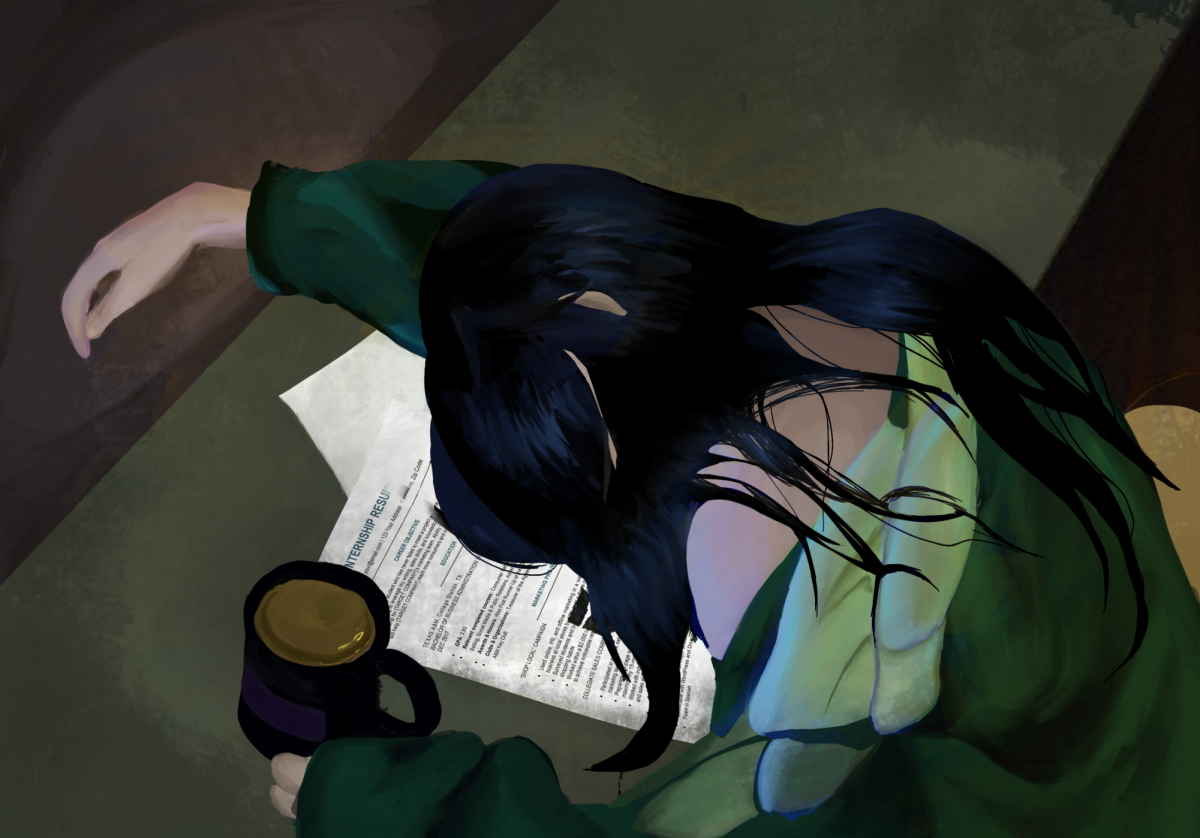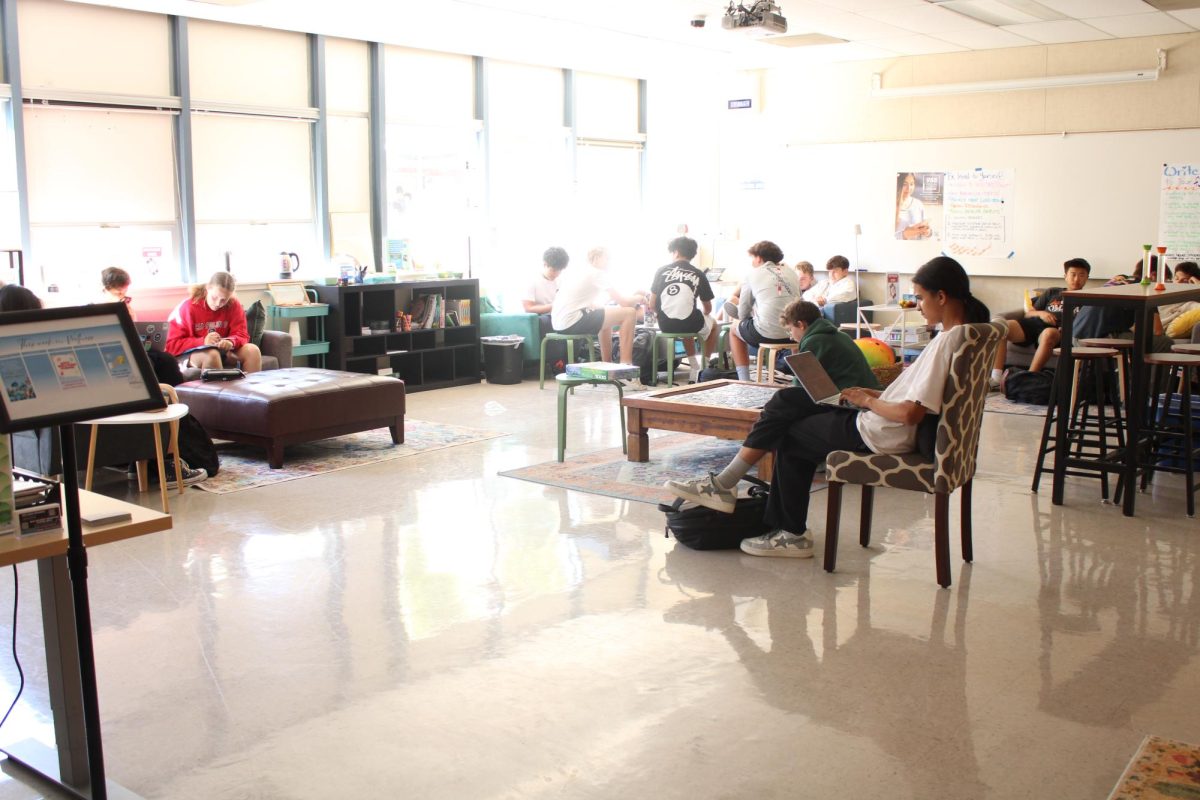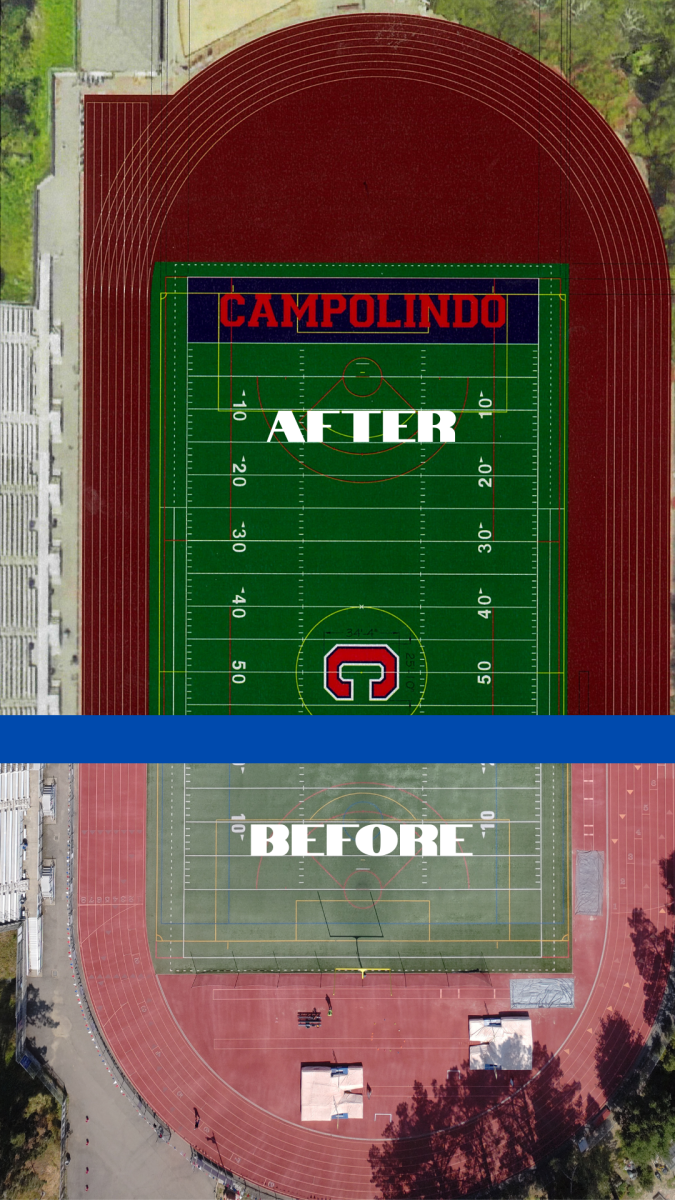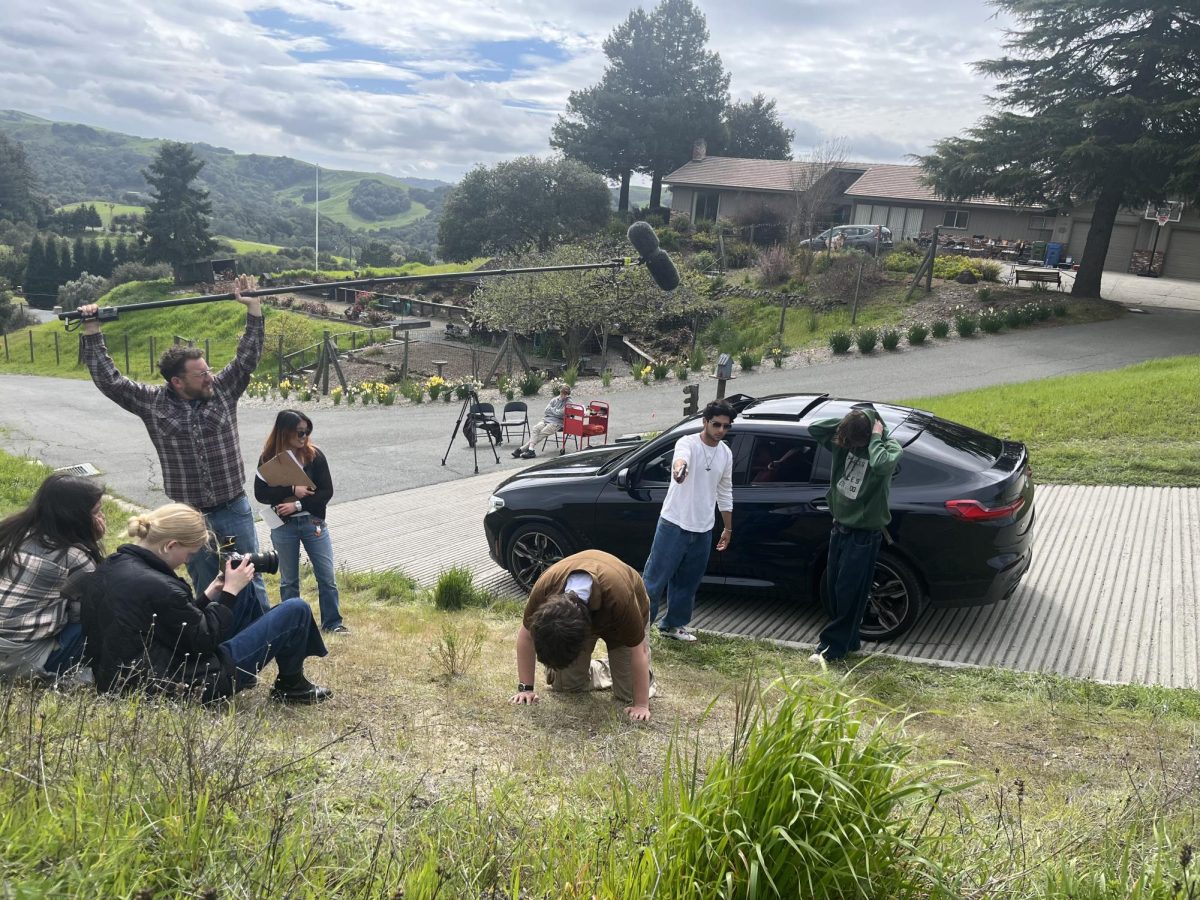Increased applicant numbers, lower acceptance rates, and community expectations have turned college preparedness into a frenzy. In our Lamorinda community intense levels of competition and high achievement are expected to secure exemplary levels of success – or at least success as we are prone to measure it.
The halls of Campolindo are full of tightly wound, anxious students fighting for a coveted spot within the ivory walls of college academia. Peer comparison and competition are cutthroat. For many, learning the science of “selling” oneself on an application to present the most impressive product to buyers is one that makes students’ moves calculated. Deciding extracurriculars, academic courses, awards, summer plans, etc. often hinge on what will translate to admissions officers as most committed, most self-actualized, and most rigorous. Making informed decisions about how we spend our time is of course essential to any success, commitment is necessary for any growth, within and outside the college context. However, parts of the process to make those decisions are neither effective nor healthy for students.
College and Career Center Advisor Denise Duff thinks, “Students are overscheduled. They’re exhausted…and all because they believe that if they don’t get into the top college they’re not going to be successful in life.” Duff doesn’t believe this is the answer: “Research would tell you over and over that…the school you go to is not going to determine who you’re going to be as an adult or what you’re going to do in your life after school. It’s who you are as a person that is going to get you further in life.”
Overscheduling hasn’t always been typical. Anecdotally many adults voice that they don’t think they would be able to get into their alma maters today due to the current levels of competition and achievement. Duff has also witnessed this. She said, “I think people in our generation, when we went to college, there was less you had to do to get in. You didn’t have to write research papers or publish articles and job shadow…it wasn’t the norm.”
Exhausted and burned out students aren’t the only consequence to pay attention to. The danger of leading with the prioritized motivation of maximizing a resume is creating hindrances to personal development and reflection. In order to fit our community’s prescriptive idea of success – what senior Bhavana Kasalanati defines as “going to a four year college, one that’s preferably a big name college, getting all As, being the star of the sports team, getting a well paying job, being able to retire early and come back to a community like this” – students sacrifice self-discovery. If high school and adolescence are supposed to be about self-discovery yet it is being suppressed in those very stages of life then when will it ever be allowed without relegation? What happens when one’s self-worth is dependent on a selective private institution or a UC acceptance? What happens when one’s confidence is based on position relative to peers? Subsequently students feel they must sound like self-actualized adults of 40 rather than 16 year olds who are very much in the process of trying, failing and exploring. “…We all want to already be completely crafted people with these two interests we’re really passionate about and we’ve already like gotten a Nobel and we’re killing things academically and we’re awesome at playing sports…It makes it easier to stick with things maybe you don’t like just so you can make it seem like you’re really dedicated to something for four years,” Kasalanati said.
Existing on autopilot for the four formative years of high school can create jaded, disillusioned teenagers. In this performative state, students may feel the emotional toil is worthwhile. However, Duff said, “Admissions officers are trying to see who you’re going to be, and they want to see that you are authentically interested and doing things that you love to do. If you’re always trying to do things because you think that’s what you need to do to get in then you’re never going to be authentic no matter how good of a writer you are.” If this is true, why do students play the college game and follow all the rules? Is the game a way to self-soothe and feign control in not just the uncontrollable system of higher education but in an entropic world?
Like higher education, living in a community like Lamorinda is a privilege and opportunity. However, in order for a privilege and opportunity to be best received they have to be remembered as such. “I think the headlines and the communities that we live in are driving the pressure more than the applications themselves,” said Duff. The way college is approached becomes an issue when our discussions, and therefore what those discussions can lead to, lack balance. Many Campolindo upperclassmen react to applications and even the mention of post-graduate plans with anxiety rather than excitement. This anxiety differs from nerves about venturing out on one’s own and leaving the family unit; it is about the gnawing fear of reading “we regret to inform you…”. Amidst the application process and laying out college plans a certain amount of this kind of anxiety is normal, but it shouldn’t be the majority’s most profound response.
As a result of the culture we create it is easier for students to forget “we’re in a school district that has a lot of opportunities to let you try a lot of different things and figure it out…Learning that you don’t like something is equally as important as learning that you do like something” said Duff.
Learning in itself is a trial and error process. Higher education is supposedly about learning. Writing college essays based on themes of personal growth is supposedly about learning. Yet, the economic selling and buying perspective, the resume-maximizing, can unintentionally incite character stagnation. Students may crawl further into self-isolating corners rather than expose themselves to change that would require growth because of the worrying ruminations that their growth won’t fit the preordained script.
By definition growth requires a level of openness and acceptance. Senior Maddie Collins tries to actively consider how she wants to spend her time and who she wants to be outside of creating a “successful” story arc. She has found value in exploring a range of activities at Campo as she learns about herself and her interests. “I was 14 when I started high school and I would not have known who I am today. I cannot tell you who I’m going to be in four years…I hope I won’t be the same person in four years because I want to grow,” said Collins.
At some point, whether now, in four years, or in four decades, living a fulfilling, happy life will mean grappling with the question of boundaries. Students must draw their lines in the sand for themselves; a counselor, a parent, a boss, a friend cannot be the ones holding the stick. When deciding whether to continue an extracurricular one dreads doing or volunteering for the umpteenth thing because of performative reasons, considering our values must come first. When young people have strong values that they can hold, that make them want to stand tall, forming character and purpose becomes real – and enough.
Cultivating meaning in a college degree goes beyond higher chances for pecuniary security. Living with purpose and contributing to the common good aren’t givens solely because someone graduates with a BA. However, it becomes more likely when today’s students and tomorrow’s workforce are raised not only to logically understand, but also emotionally believe their worth can’t be summed up in a number or name.








